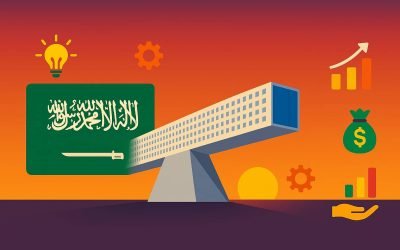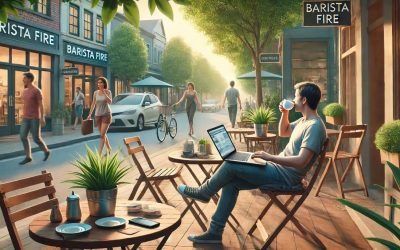Understanding the Basics: Stocks and ETFs
Investing in the financial markets can be a daunting task, especially for beginners. Two of the most popular investment vehicles are stocks and exchange-traded funds (ETFs). While both offer opportunities for growth and income, they have distinct characteristics that can make one more suitable than the other depending on an investor’s goals and risk tolerance. This article delves into the key differences and benefits of stocks and ETFs, providing valuable insights to help you make informed investment decisions.
What Are Stocks?
Stocks, also known as shares or equities, represent ownership in a company. When you purchase a stock, you are essentially buying a small piece of that company. Stocks are traded on stock exchanges, such as the London Stock Exchange (LSE) or the New York Stock Exchange (NYSE), and their prices fluctuate based on supply and demand, as well as the company’s performance and broader economic factors.
Types of Stocks
- Common Stocks: These are the most prevalent type of stocks, giving shareholders voting rights and potential dividends.
- Preferred Stocks: These stocks offer fixed dividends and have priority over common stocks in the event of liquidation, but typically do not come with voting rights.
Benefits of Investing in Stocks
- Potential for High Returns: Stocks have historically provided higher returns compared to other asset classes over the long term.
- Ownership and Voting Rights: Shareholders can influence company decisions through voting rights.
- Dividend Income: Many companies pay dividends, providing a steady income stream.
What Are ETFs?
Exchange-traded funds (ETFs) are investment funds that hold a diversified portfolio of assets, such as stocks, bonds, or commodities. ETFs are traded on stock exchanges, similar to individual stocks, and their prices fluctuate throughout the trading day. ETFs are designed to track the performance of a specific index, sector, or asset class.
Types of ETFs
- Equity ETFs: These ETFs invest in a basket of stocks, often tracking a specific index like the FTSE 100 or S&P 500.
- Bond ETFs: These ETFs invest in a portfolio of bonds, providing exposure to fixed-income securities.
- Commodity ETFs: These ETFs invest in physical commodities like gold, oil, or agricultural products.
- Sector and Industry ETFs: These ETFs focus on specific sectors or industries, such as technology or healthcare.
Benefits of Investing in ETFs
- Diversification: ETFs provide exposure to a broad range of assets, reducing the risk associated with individual securities.
- Lower Costs: ETFs typically have lower expense ratios compared to mutual funds and other investment vehicles.
- Liquidity: ETFs can be bought and sold throughout the trading day, offering flexibility and ease of access.
- Transparency: ETFs disclose their holdings daily, allowing investors to see exactly what they own.
Key Differences Between Stocks and ETFs
While both stocks and ETFs are traded on stock exchanges and offer opportunities for growth, they have several key differences that investors should consider.
Ownership and Structure
When you buy a stock, you are purchasing ownership in a single company. This ownership comes with voting rights and the potential to receive dividends. In contrast, when you buy an ETF, you are purchasing a share in a fund that holds a diversified portfolio of assets. This means you do not have direct ownership of the underlying assets, nor do you have voting rights in the individual companies within the ETF.
Diversification
One of the primary advantages of ETFs over individual stocks is diversification. By investing in an ETF, you gain exposure to a broad range of assets, which can help reduce risk. For example, an equity ETF might hold shares in hundreds of different companies, spreading the risk across multiple sectors and industries. In contrast, investing in individual stocks can be riskier, as your investment is tied to the performance of a single company.
Cost and Fees
ETFs generally have lower expense ratios compared to mutual funds and other investment vehicles. This is because ETFs are passively managed, meaning they aim to replicate the performance of an index rather than actively selecting securities. However, when comparing ETFs to individual stocks, the cost difference can be less significant. Both stocks and ETFs incur trading fees, but ETFs may have additional management fees, albeit typically low.
Trading Flexibility
Both stocks and ETFs can be bought and sold throughout the trading day at market prices. This intraday trading flexibility allows investors to react quickly to market movements. However, it’s important to note that while stocks can be traded in fractional shares, ETFs are usually traded in whole shares, which might require a larger initial investment.
Tax Efficiency
ETFs are generally more tax-efficient than mutual funds due to their unique structure. When an investor sells shares of an ETF, the transaction occurs between investors on the exchange, rather than the fund itself. This minimises capital gains distributions. In contrast, selling individual stocks can trigger capital gains taxes, depending on the holding period and the investor’s tax situation.
Comparing Performance: Stocks vs ETFs
Performance is a critical factor when choosing between stocks and ETFs. While both can offer attractive returns, their performance characteristics can differ significantly.
Historical Performance
Historically, stocks have provided higher returns compared to other asset classes, including bonds and cash. However, this higher return potential comes with increased volatility and risk. Individual stock performance can vary widely, with some stocks delivering exceptional returns while others may underperform or even become worthless.
ETFs, on the other hand, aim to replicate the performance of a specific index or asset class. As a result, their returns are generally more stable and predictable compared to individual stocks. For example, an ETF tracking the S&P 500 will deliver returns that closely mirror the performance of the index, providing broad market exposure with reduced risk.
Risk and Volatility
Investing in individual stocks can be highly volatile, as stock prices are influenced by company-specific factors, such as earnings reports, management changes, and industry trends. This volatility can lead to significant price swings, both positive and negative.
ETFs, by their nature, offer diversification, which helps mitigate risk. By holding a basket of assets, ETFs reduce the impact of any single security’s performance on the overall portfolio. This diversification can lead to lower volatility and more stable returns over time.
Choosing Between Stocks and ETFs: Factors to Consider
Deciding whether to invest in stocks or ETFs depends on various factors, including your investment goals, risk tolerance, and time horizon. Here are some key considerations to help you make an informed decision.
Investment Goals
Your investment goals play a crucial role in determining whether stocks or ETFs are more suitable for you. If you are looking for high growth potential and are willing to take on more risk, individual stocks may be a better choice. On the other hand, if you prefer a more conservative approach with steady returns and lower risk, ETFs might be more appropriate.
Risk Tolerance
Understanding your risk tolerance is essential when choosing between stocks and ETFs. If you can tolerate significant price fluctuations and are comfortable with the possibility of losing some or all of your investment, individual stocks may be suitable. However, if you prefer a more stable investment with reduced risk, ETFs offer diversification and lower volatility.
Time Horizon
Your investment time horizon is another critical factor to consider. If you have a long-term investment horizon, you may be able to ride out the volatility of individual stocks and benefit from their higher growth potential. Conversely, if you have a shorter time horizon or need more predictable returns, ETFs may be a better fit.
Research and Monitoring
Investing in individual stocks requires thorough research and ongoing monitoring. You need to stay informed about the companies you invest in, including their financial performance, industry trends, and market conditions. This can be time-consuming and requires a certain level of expertise.
ETFs, on the other hand, require less research and monitoring. Since they track a specific index or asset class, you do not need to analyse individual securities. This makes ETFs a more hands-off investment option, suitable for those who prefer a more passive approach.
Practical Examples: Stocks vs ETFs
To illustrate the differences between stocks and ETFs, let’s consider a few practical examples.
Example 1: Investing in Technology
Suppose you are interested in investing in the technology sector. You have two options: buying individual technology stocks or investing in a technology-focused ETF.
- Individual Stocks: You could purchase shares of leading technology companies like Apple, Microsoft, or Google. This approach allows you to target specific companies with high growth potential. However, it also exposes you to company-specific risks, such as poor earnings performance or increased competition.
- Technology ETF: Alternatively, you could invest in a technology ETF, such as the Invesco QQQ ETF, which tracks the Nasdaq-100 Index. This ETF provides exposure to a diversified portfolio of technology companies, reducing the risk associated with individual stocks while still allowing you to benefit from the sector’s growth.
Example 2: Income Generation
If your primary goal is income generation, you might consider investing in dividend-paying stocks or a dividend-focused ETF.
- Dividend Stocks: You could purchase shares of companies with a history of paying consistent dividends, such as Johnson & Johnson, Procter & Gamble, or Coca-Cola. This approach allows you to select companies with strong dividend yields and growth potential. However, it requires ongoing research to ensure the companies maintain their dividend payments.
- Dividend ETF: Alternatively, you could invest in a dividend-focused ETF, such as the iShares Select Dividend ETF (DVY). This ETF holds a diversified portfolio of dividend-paying stocks, providing a steady income stream with reduced risk compared to individual stocks.

Conclusion: Stocks vs ETFs – Making the Right Choice
Both stocks and ETFs offer unique benefits and can play a valuable role in a diversified investment portfolio. Understanding the key differences between these investment vehicles is essential for making informed decisions that align with your financial goals, risk tolerance, and time horizon.
Stocks provide the potential for high returns and ownership in individual companies, but they come with increased volatility and risk. Investing in individual stocks requires thorough research and ongoing monitoring to stay informed about company performance and market conditions.
ETFs, on the other hand, offer diversification, lower costs, and tax efficiency. They provide exposure to a broad range of assets, reducing the risk associated with individual securities. ETFs are suitable for investors seeking a more passive approach with steady returns and lower volatility.
Ultimately, the choice between stocks and ETFs depends on your personal preferences and investment objectives. By carefully considering your goals, risk tolerance, and time horizon, you can make the right choice to build a well-balanced and successful investment portfolio.
Q&A Section
Q1: What are the main differences between stocks and ETFs?
A1: The main differences between stocks and ETFs include ownership and structure, diversification, cost and fees, trading flexibility, and tax efficiency. Stocks represent ownership in a single company, while ETFs hold a diversified portfolio of assets. ETFs generally offer lower costs, greater diversification, and more tax efficiency compared to individual stocks.
Q2: Which investment is better for beginners, stocks or ETFs?
A2: For beginners, ETFs are often a better choice due to their diversification, lower costs, and reduced risk. ETFs provide exposure to a broad range of assets, making them a more stable and predictable investment option compared to individual stocks.
Q3: Can I invest in both stocks and ETFs?
A3: Yes, you can invest in both stocks and ETFs to create a diversified investment portfolio. Combining individual stocks with ETFs allows you to benefit from the growth potential of specific companies while also reducing risk through diversification.
Q4: How do I choose the right ETF for my investment goals?
A4: To choose the right ETF, consider your investment goals, risk tolerance, and time horizon. Look for ETFs that align with your objectives, such as equity ETFs for growth, bond ETFs for income, or sector-specific ETFs for targeted exposure. Additionally, compare expense ratios, historical performance, and the underlying index or asset class the ETF tracks.
Q5: Are there any risks associated with investing in ETFs?
A5: While ETFs offer diversification and lower risk compared to individual stocks, they are not risk-free. ETFs can still be affected by market volatility, economic conditions, and changes in the underlying assets’ performance. It’s essential to research and understand the specific risks associated with the ETFs you invest in.
More reading on the subject:















 How to trade CFD? (00:49)
How to trade CFD? (00:49) How to trade binary options*? (01:22)
How to trade binary options*? (01:22) Forex. How to start? (01:01)
Forex. How to start? (01:01)